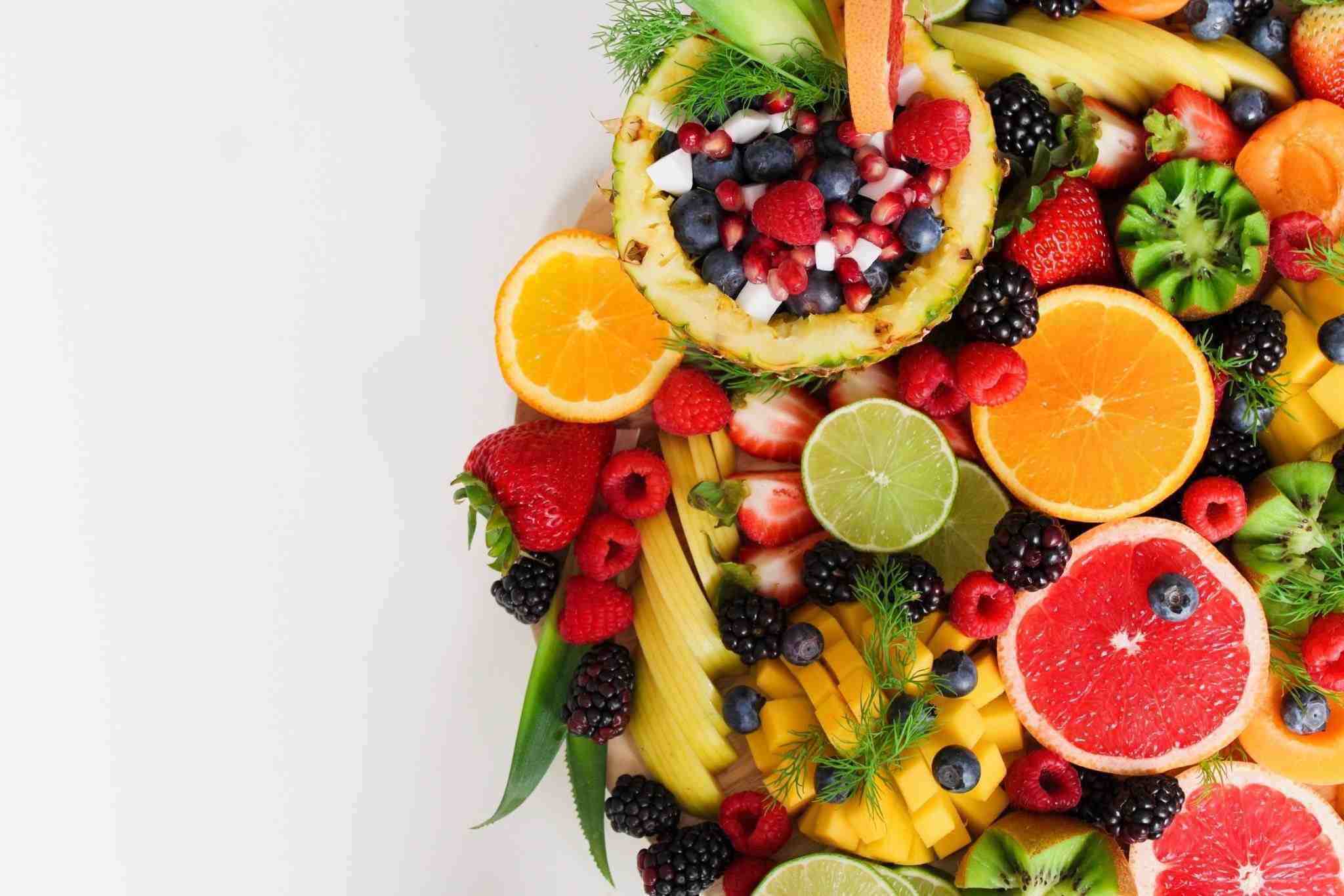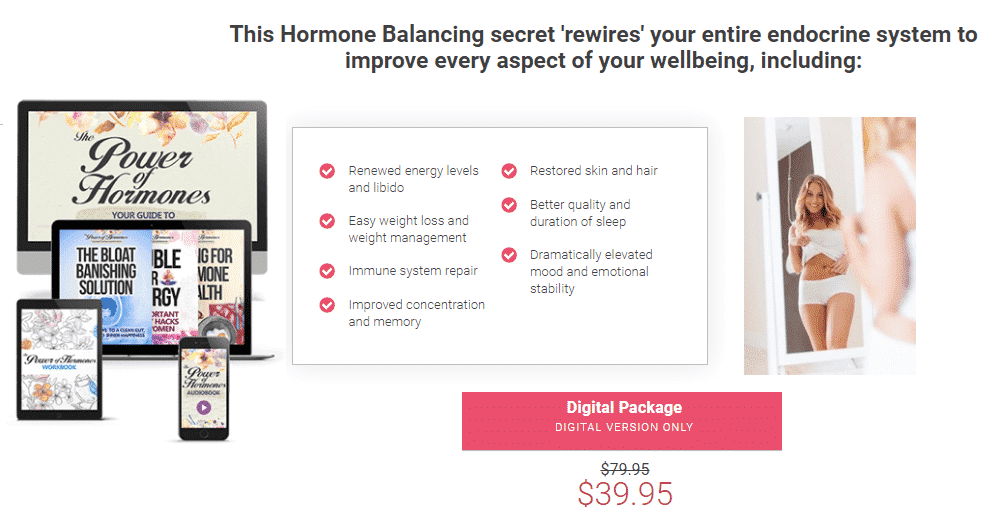
Prenatal vitamins are an important resource that helps and ensure the proper development of your babies. We know, Pregnancy is tough and demanding. Mother and baby need essential nutrition, especially during this time. Only diet can not fill up the necessary nutrition. That is where prenatal vitamins come in. Prenatal vitamins can provide the required nutrition you need during pregnancy so that your baby also get what exactly he or she needed to grow and develop properly.

Best Prenatal Vitamins for a Healthy Pregnancy
Prenatal #Vitamins are a group of vitamins that a woman should take #during #pregnancy to ensure proper growth and #nutrition of her #baby. Below are the ...
What are Prenatal Vitamins?
Vitamins are minute nutrients when consumed don’t provide the body with energy but it’s important to ensure good health and your body functioning well. Prenatal vitamins are a group of vitamins a woman should take during pregnancy to ensure proper growth and nutrition of her baby.
What Vitamins Should You Take During Pregnancy?
Your needs for prenatal vitamins and minerals depend on your pregnancy diet. Taking care of your pregnancy diet will help you get most of the vitamins you need. But when you’re pregnant or seeking pregnancy, you should take folic acid.
Best Prenatal Vitamins
Take prenatal vitamins to ensure covering any nutritional gap in your pregnancy diet. The best prenatal supplements to take include folic acid, iron, and calcium.
Why is Folic Acid the Best Prenatal Vitamin?
Folic acid is a B vitamin concerned with making new cells and synthesis of DNA. So it’s essential during pregnancy even before to ensure normal growth and development of the growing baby. So folic acid is one of the best prenatal supplements.
It is recommended before and during pregnancy; as it helps prevent a serious condition called “neural tube birth defect” which can affect about 3,000 babies in the United States each year. This serious problem occurs in the first trimester of pregnancy especially in the first month before even knowing that you are pregnant. So it’s recommended to take the folic acid supplement before pregnancy and continuing it through the first trimester of pregnancy.
For women who missed taking the folic acid supplement and have a baby with a neural tube defect should seek medical advice to know is it good to take folic acid supplements. According to studies, folic acid in large doses (up to 4,000 micrograms) may be of a good value for those women but consult your doctor first.
- Folic acid helps prevent a serious problem known as “neural tube defects” which can affect the developing spinal cord and brain of your baby.
- Studies also show that folic acid in early pregnancy may help prevent birth defects such as cleft lip and cleft palate.
- According to studies, the other benefit of the prenatal vitamins and minerals i.e. folic acid is that during pregnancy it can significantly reduce the risk of congenital heart diseases such as defects in the walls of your baby’s heart champers impairing the blood supply to his/her body after birth causing significant health problems.
Sources of Folic Acid
You can get your needs of folic acid from food by including food containing folic acid in your pregnancy diet. These foods include green leafy vegetables, nuts, beans, citrus fruits. But, it’s recommended to get your needs from a supplement with the right dose of folic acid. You can get folic acid that is one of the best prenatal supplements from online stores, Pharmacies & supermarkets.
What is the Proper Dose of Folic Acid During Pregnancy?
If you’re pregnant, you should take one a day prenatal vitamins tablets of folic acid-containing at least 400 mcg. According to CDC, you should start taking 400 mcg of folic acid daily before even discovering that you’re pregnant; to protect your baby from neural tube defects which can occur during the first month of pregnancy, often before realizing that you’re pregnant.
The doctor may prescribe higher doses of folic acid in the following conditions:
- Chronic kidney disease and a dialysis patient.
- Sickle cell anemia
- liver diseases
- Certain drugs such as anti-epileptics & type 2 diabetes drugs.
Can Folic Acid Help Me Get Pregnant?
Folic acid doesn’t help get pregnant, however, it is the most needed prenatal supplement during the fertility period of women. So any pregnant woman or trying to conceive should get enough doses of folic acid to protect the baby from serious developmental problems. For men fertility, folic acid can help increase semen count.
Why is Calcium One of the Best Prenatal Vitamins?
Calcium is one of the most important prenatal vitamins. During pregnancy, your baby’s growing bones and teeth need more and more calcium to be strong enough. Your baby gets his needs of calcium from yours. If there isn’t a sufficient amount in your blood, your baby will draw his needs from your bones and teeth; so calcium is one of the best prenatal vitamins you should take. It can help maintain your bone and teeth strong.
- It helps your baby’s heart, nerves, and muscles grow well.
- According to a clinical trial, a calcium supplement may help prevent pregnancy loss, high blood pressure problems.
How Much Calcium Should a Pregnant Woman Have?
You don’t need more calcium during pregnancy but you should ensure taking at least 1,000 mg of calcium daily if your age is over 18 years. The younger women need at least 1,300 mg of calcium daily.
Prenatal vitamins and minerals provide you with at least 150 mg of calcium. So it’s better to take a separate calcium supplement to cover your pregnancy diet gap. Unlike other prenatal vitamins, calcium is taken several times a day as your body can’t absorb more than 500 mg at a time. So to get your requirements of calcium you need to take it in small doses.
When Should a Pregnant Woman Start Take Calcium?
Few studies are available to say that calcium supplement is necessary during the first trimester of pregnancy but it has been shown that giving calcium supplements during the 2nd half of pregnancy may help prevent pregnancy loss, high blood pressure problems, particularly for those, do not get enough calcium in their diets.
Can Low Iron Affect My Unborn Baby?
Yes, low iron can affect you and your baby. Iron is one of the most important supplements you should look for in your prenatal vitamins. Iron is needed to make more red blood cells which are responsible for carrying oxygen supply to the tissue. If you don’t provide your baby with the iron supplements needed he will draw it from your body so you may experience shortness of breath as a symptom of being anemic. Anemia can also lead to low birth weight of the baby and premature birth.
- Feeling drained and tired
- Shortness of breath
- Feeling unsteady
- Exhaustion with eating
- Cold and blue hands and feet
- Chest pain
When Should a Pregnant Start Take Iron Supplements?
According to CDC, the iron supplement of 30 mg daily should be started as early as possible. Usually, during your first prenatal appointment, your doctor prescribes prenatal vitamins and minerals containing this amount of iron.
How Much Iron Should I Take?
It is recommended to get at least 30 milligrams mg of iron daily during pregnancy. If you want to get more iron from food try the type that your body can deal with this type is called “heme iron” and found in beef, chicken, and turkey.
Vitamin D is one of the main prenatal supplements you should look for in prenatal vitamins. Vitamin D is important for bone health. The body can produce this vitamin on exposure to sunlight, but it is also present in oily fish and eggs.
Why Should I Take Calcium During Pregnancy?
Vitamin D is good for you and your baby. Taking prenatal vitamins high in vitamin D supplements prevent “vitamin D deficiency” one of the most prevalent problems during pregnancy, associated with certain conditions such as the higher risk of preeclampsia, gestational diabetes mellitus, low birth weight, and premature birth.
How Much Vitamin D Should I Take During Pregnancy?
In 2016 World Health Organization (WHO) doesn’t recommend taking vitamin D supplementation during pregnancy. Instead, you should seek adequate nutrition through the consumption of a healthy balanced diet. Old data shows that you should look for prenatal vitamins containing about 400 IU of vitamin D, and don’t take more than 2,000 IU of the vitamin daily.
Do I Need Iodine During Pregnancy?
Iodine is needed for the synthesis of thyroid hormones which are critical for the growth and development of your baby organs, especially the brain. During the first trimester of pregnancy especially the first half your baby gets his requirements of iodine from your body.
Although in the second trimester your baby’s gland starts to make thyroid hormone, it isn’t sufficient to cover his need what makes your baby needs your hormones throughout pregnancy. So it’s necessary to include foods rich in iodine in your pregnancy diet. Or better look for Nutrients & Vitamins for Pregnancy containing at least 150 micrograms of iodine. Iodine is high in well-cooked seafood, milk, eggs, and some cereals. You can also buy iodine tablets as a separate supplement online or at pharmacies.
How Much Iodine Do I Need?
The best prenatal supplements should include 220 to 250 mcg of iodine. You need to take iodine before, during and after pregnancy.
- Higher risk of pregnancy loss
- Enlargement of your own and your baby thyroid gland
- Impairment of the baby’s mental and physical growth
What Prenatal Vitamins and Minerals Should Be Avoided During Pregnancy?
While prenatal vitamins are necessary to cover any nutritional gaps in your pregnancy, many should be avoided including:
Vitamin A is extremely important for the development of the heart, lungs, kidneys, eyes, and bones of your baby. Also, it is essential for your health; as it helps with postpartum tissue recovery, supports your immune system fighting infections, and helps with weight loss. This means that vitamin A itself is very essential but high doses can harm your baby. Fortunately, American foods contain a considerable amount; so it is recommended not to look for vitamin A in prenatal vitamins.
How Much Vitamin a is Safe for Pregnancy?
The U.S. Recommended Daily Allowance is 8,000 international units (IU) daily which is the maximum dose that should be used during pregnancy. You don’t need to look for vitamin A supplements as but it’s advised to get your requirements from rich foods including meat, dairy, fish, and eggs.
Vitamin E isn’t absolutely avoided during pregnancy. According to studies, excess vitamin E during pregnancy especially the first trimester isn’t associated with a higher risk for major malformations, stillbirths, preterm birth, preeclampsia, or intrauterine growth impairment but may lead to low birth weight.
Importance of Vitamin E During Pregnancy
Vitamin E, when obtained from your diet, is possibly safe but taking prenatal supplements might harm your baby especially when taken in early pregnancy. The benefits of vitamin e during pregnancy are still questionable and include:
- Protects the body from the harmful effect of the free radicals being antioxidant.
- Supports the immune system by fighting viruses and bacteria.
- Decrease the risk of blood clotting inside the vessels.
- Vitamin E oil can help treat stretch marks of pregnancy.
- Helps prevent anemia by the formation of Red Blood Cells.
- Vitamin E helps decrease pregnancy loss if consumed in the early stages of pregnancy.
Vitamin E Pregnancy Dosage
Don’t look for vitamin E in your prenatal vitamins, instead, it’s recommended to eat a healthy, balanced diet providing your needs without taking supplements.
When Should I Start Taking Prenatal Vitamins?
Pregnant or seeking pregnancy: you should start taking pregnancy vitamins as early as possible. Don’t wait until realizing that you’re pregnant. Folic acid is needed in the first month of pregnancy for your baby’s brain and spinal cord development; so its deficiency can cause serious problems in silence before even realizing that you’re pregnant. It is advised to take folic acid supplements during all years of your fertility or at least three months before becoming pregnant.
Is it a Good idea to Take Prenatal Vitamins When Not Pregnant?
Yes, it’s good to take prenatal vitamins when not pregnant; as it can help your hair grow thicker and promote stronger nails, but it isn’t advisable to take high levels vitamins for a long period.
What are the Side Effects of Prenatal Vitamins?
If you are pregnant, it’s recommended to take prenatal vitamins to provide your baby with supplements needed for his growth and development. Best prenatal vitamins should include folic acid, calcium, iron, vitamin D, and iodine in proper amounts as recommended.
However taking nutrients & vitamins for pregnancy is essential during pregnancy to ensure good health for you and your baby, it may have the following side effects being used for a long period or in improper doses. The possible side effects of prenatal vitamins include constipation, dark stools, nausea, and stomach upset attributed to the iron present in prenatal vitamins. The other side effects are related to being used for a long period and include an unpleasant taste in your mouth, headache, and loss of appetite. Taking prenatal vitamins as directed by your doctor helps avoid any side effects. Don’t take any supplements before consulting your doctor.
Seek emergency medical help if you have any signs of allergy including difficulty breathing, swelling of your face, lips, tongue, or throat.





